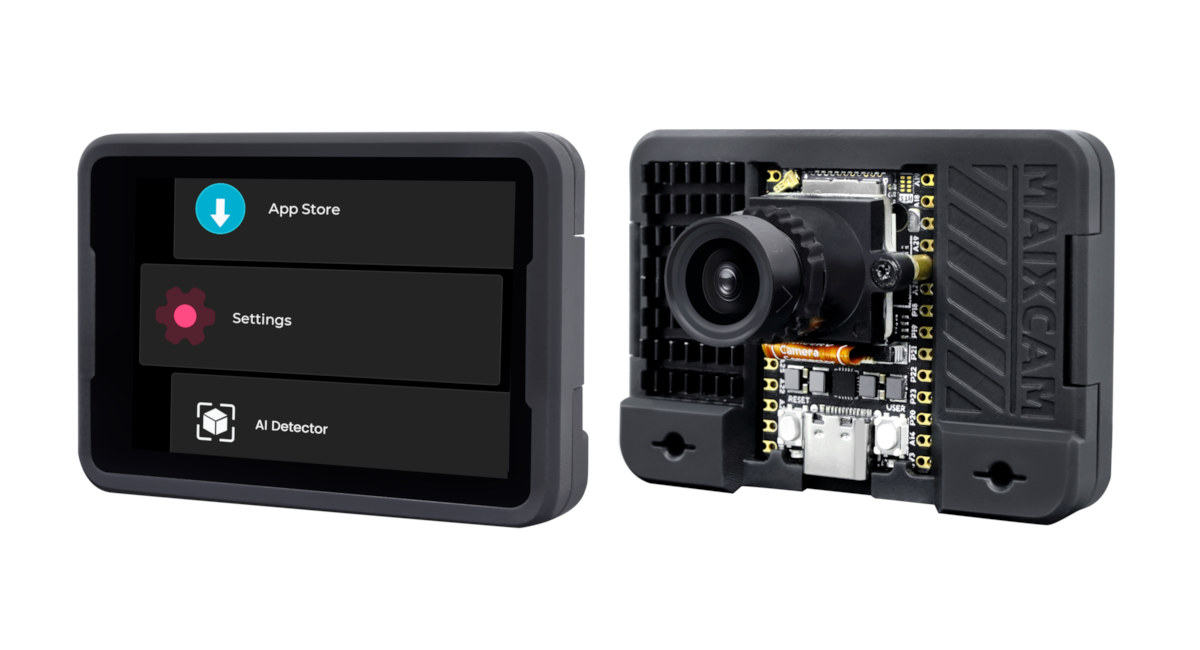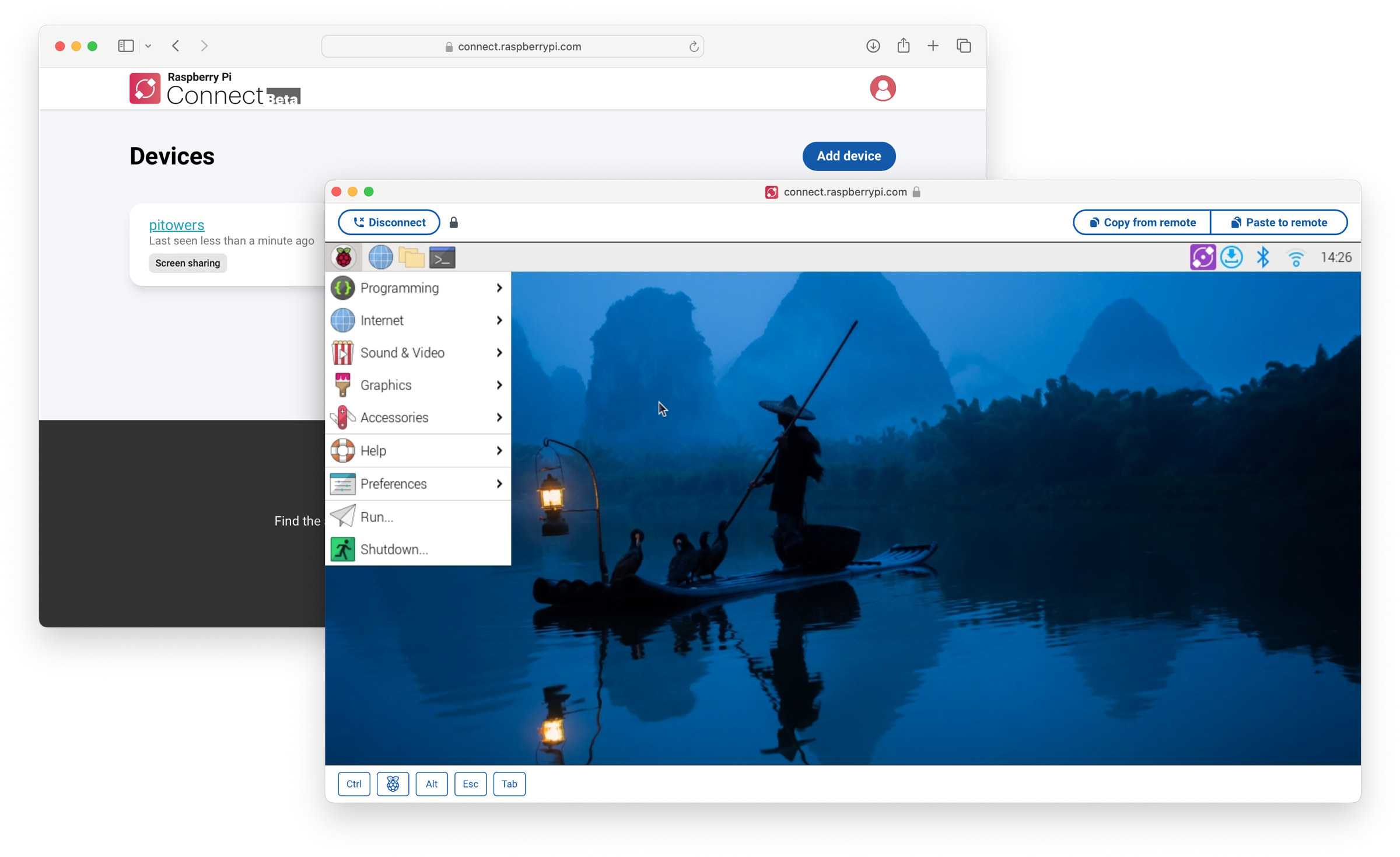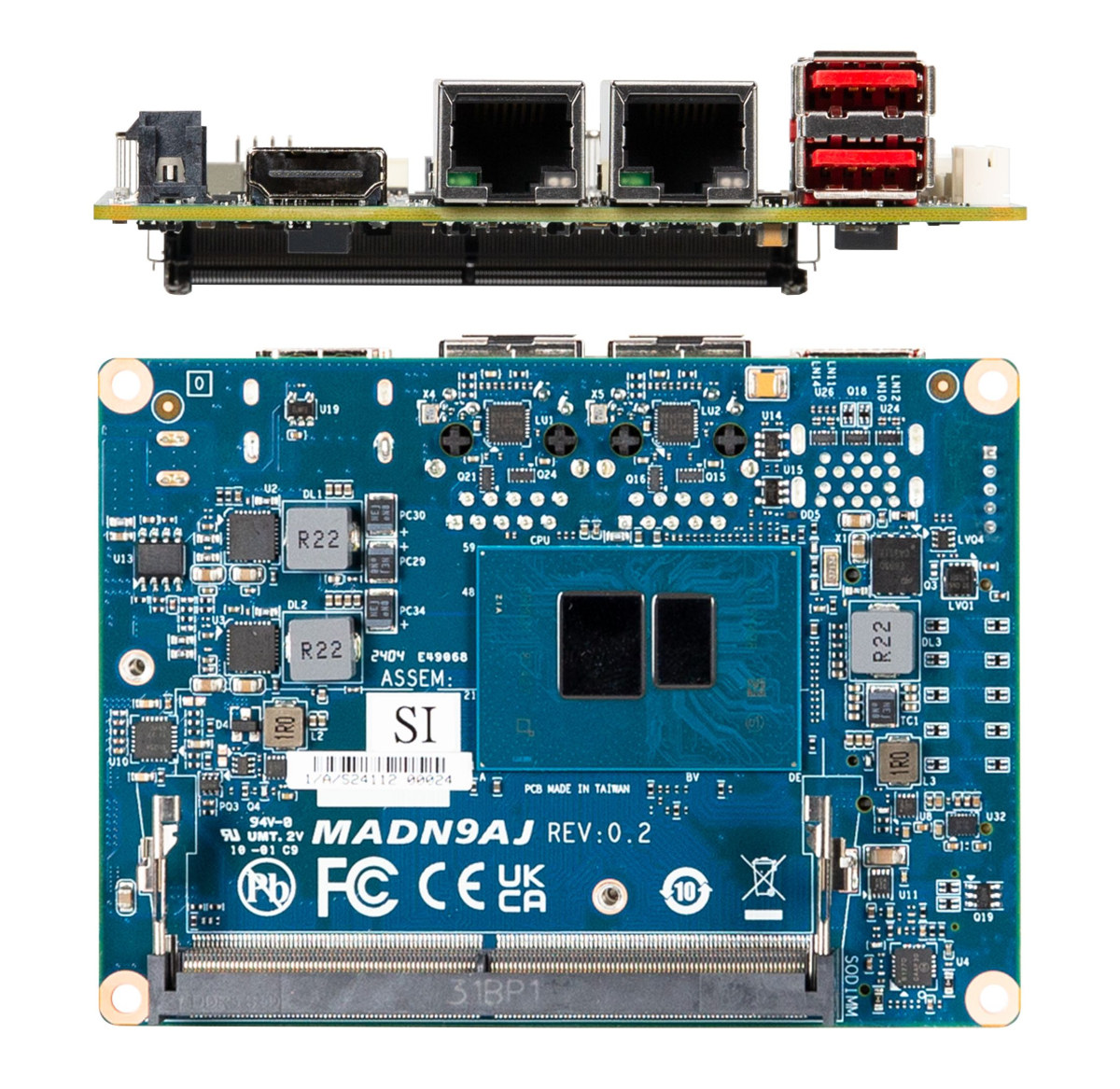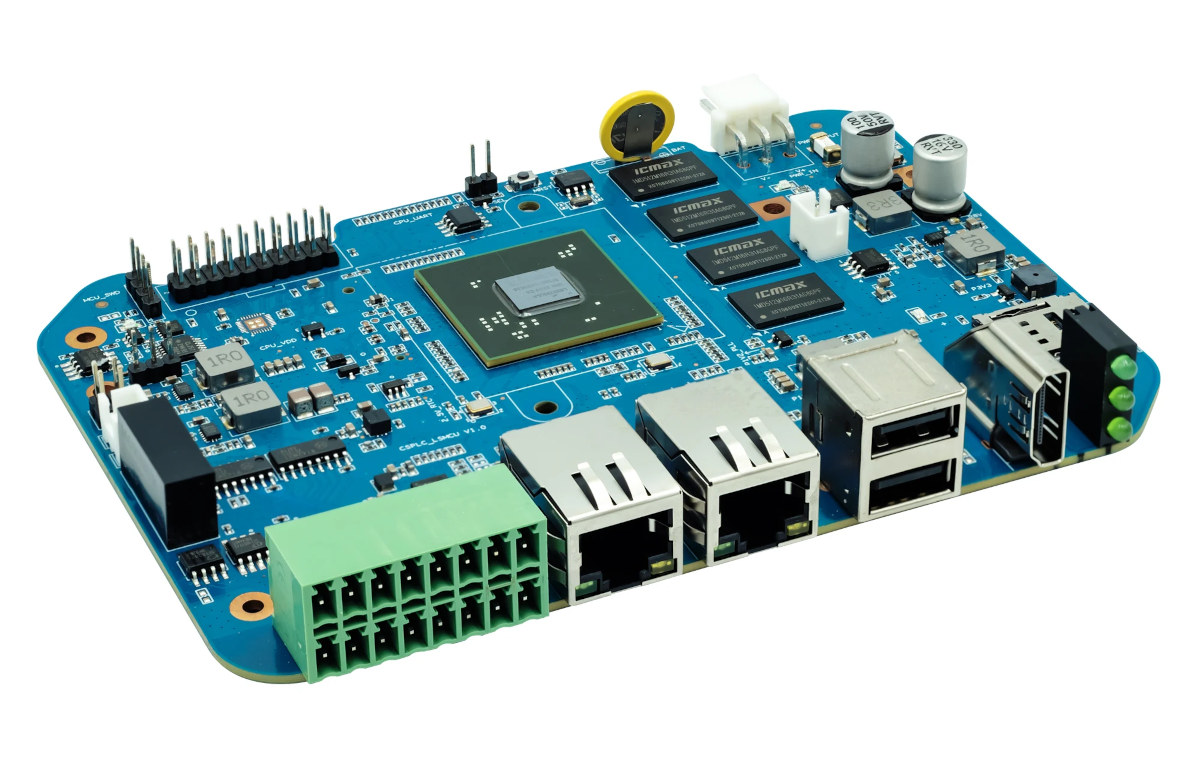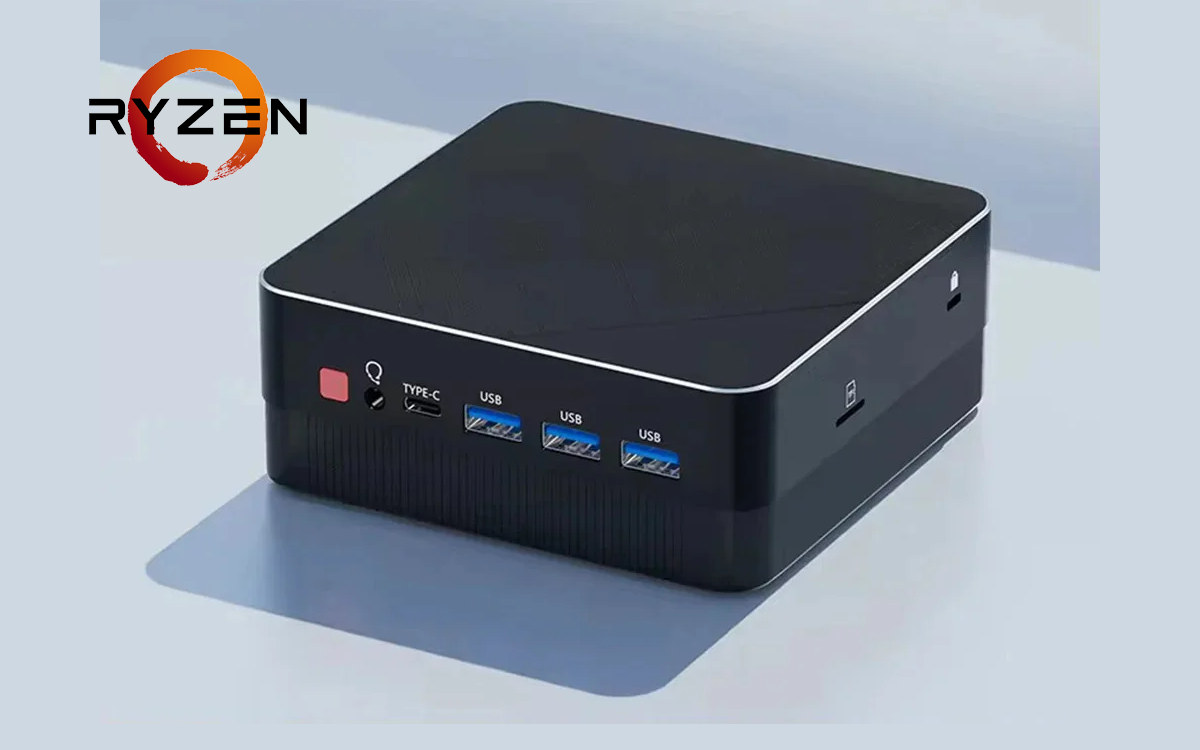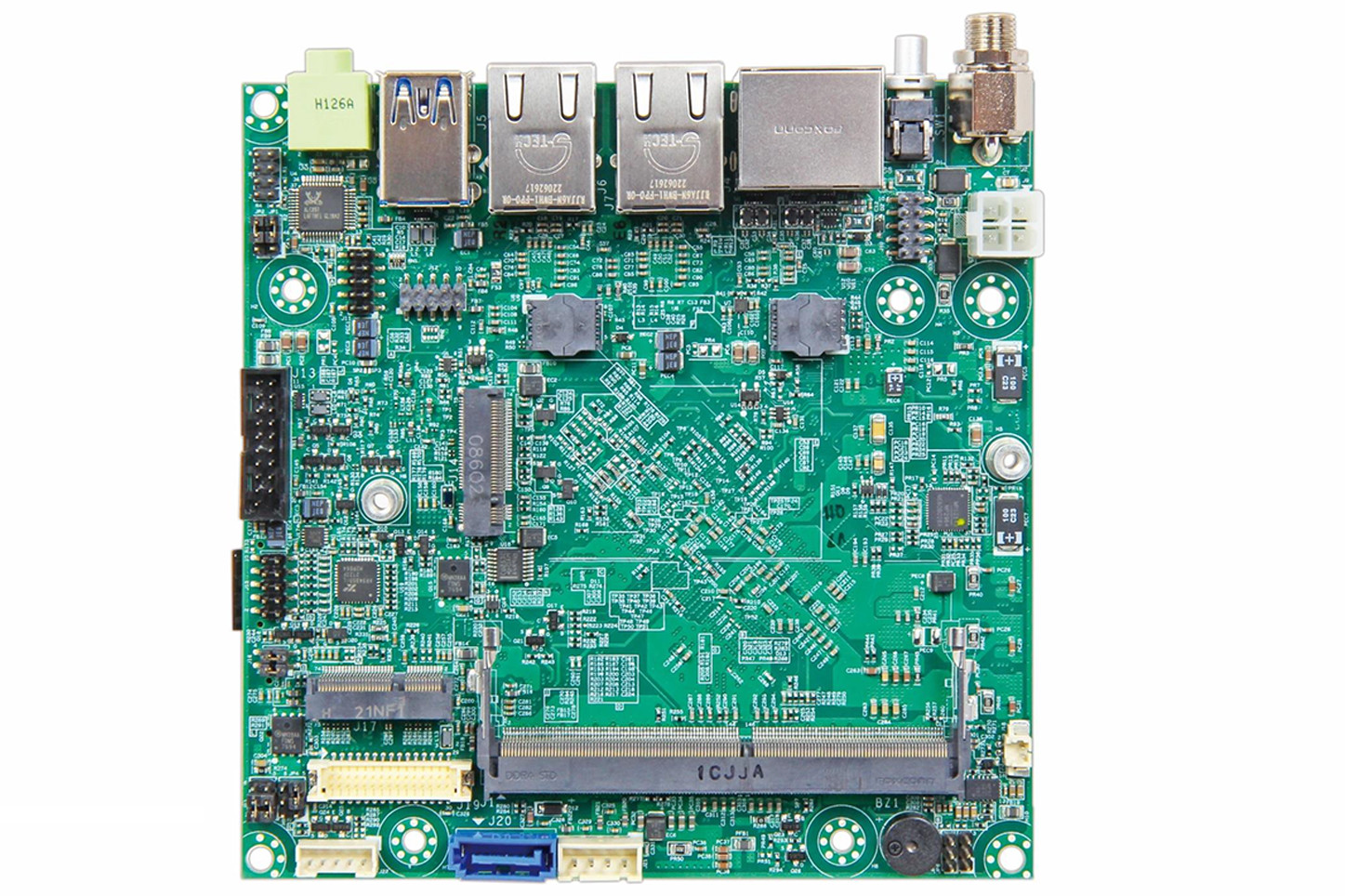Sipeed MaixCAM is an AI camera based on SOPHGO SG2002 RISC-V (and Arm, and 8051) SoC with a 1 TOPS NPU that takes up to 5MP camera modules and comes with a 2.3-inch color touchscreen display. The development kit also comes with WiFi 6 and BLE 5.4 connectivity, optional Ethernet, audio input and output ports, a USB Type-C port, and two 14-pin GPIO headers for expansion that makes it suitable for a range of computer vision, Smart audio, and AIoT applications. Sipeed MaixCAM specifications: SoC – SOPHGO SG2002 CPU 1 GHz RISC-V C906 processor or Arm Cortex-A53 core (selectable at boot) running Linux 700 MHz RISC-V C906 core running an RTOS 25 to 300 MHz low-power 8051 processor NPU – 1 TOPS @ INT8 with support for models such as Mobilenetv2, YOLOv5, YOLOv8, etc… Video Codec – H.264, H.265, MJPEG hardware encoding and decoding up to 2K @ 30fps Memory […]
QEMU 9.0 released with Raspberry Pi 4 support and LoongArch KVM acceleration
QEMU 9.0 open-source emulator just came out the other day, and it brings on board major updates and improvements to Arm, RISC-V, HPPA, LoongArch, and s390x emulation. But the most notable updates are in Arm and LoongArch emulation. The QEMU 9.0 emulator now supports the Raspberry Pi 4 Model B, meaning you can run the 64-bit Raspberry Pi OS for testing applications without owning the hardware. However, QEMU 9.0 has some limitations since Ethernet and PCIe are not supported for the Raspberry Pi board. According to the developers, these features will come on board in a future release. For now, the emulator supports SPI and I2C (BSC) controllers. Still on ARM, QEMU 9.0 provides board support for the mp3-an536 (MPS3 dev board + AN536 firmware) and B-L475E-IOT01A IoT node, plus architectural feature support for Nested Virtualization, Enhanced Counter Virtualization, and Enhanced Nested Virtualization. If you develop applications for the LoongArch […]
Raspberry Pi Connect software makes remote access to Raspberry Pi boards easier
Raspberry Pi Connect software, currently in beta, aims to make remote access to the Raspberry Pi boards even easier and more secure by using a web browser and minimal configuration needed. It’s been possible to access Raspberry Pi boards remotely through VNC forever, and the X protocol used to be an option before the switch to Wayland, but both can be somewhat hard to configure especially when wanting to access the machine on a different local network or from the internet. Raspberry Pi Connect aims to change that. Under the hood, we’re told the web browser and the Raspberry Pi device established a secure peer-to-peer connection with the same WebRTC communication technology found in programs such as Zoom, Google Meet, or Microsoft Teams. The Raspberry Pi runs the “rpi-connect” daemon that listens to screen-sharing requests from the Raspberry Pi Connect website and establishes a secure, low-latency VNC instance directly between […]
GIGAIPC PICO-N97A is a Pico-ITX SBC powered by an Intel Processor N97 CPU
GIGAIPC PICO-N97A Pico-ITX SBC features an Intel Processor N97 quad-core Alder Lake-N processor coupled with up to 16GB DDR5 SO-DIMM memory and M.2 SATA or NVMe storage designed for passively cooled and enclosed systems for Industry 4.0 applications in the smart cities, retail, and healthcare sectors. The single board computer supports up to two independent displays via HDMI and LVDS interfaces. It also provides dual Gigabit Ethernet, two USB 3.1 ports, an additional M.2 Key-B socket for wireless, and various headers for RS232/RS422/RS485, GPIO, USB 2.0, and more. GIGAIPC PICO-N97A specifications: SoC – Intel Processor N97 CPU – Alder Lake-N quad-core/quad-thread processor @ up to 3.6 GHz Cache – 6MB cache GPU – 24 EU Intel UHD graphics @ up to 1.20 GHz TDP: 12W System Memory – Up to 16GB DDR5-4800 via a single SO-DIMM socket Storage – SATA or NVMe SSD via M.2 M-Key socket (See expansion) Video […]
Loongson 2K1000LA dual-core LoongArch processor powers industrial SBCs and IoT gateways
Loongson 2K1000LA is a 1GHz dual-core 64-bit LoongArch processor designed for industrial applications with gigabit Ethernet, SATA, two PCIe interfaces, two digital video outputs, audio interfaces, USB 2.0, and others all in a 1 to 5W power envelop. It is found in Loongson’s own development board and Banana Pi BPI-5020 2K1000LA SBC. The LoongArch architecture was first introduced in 2021 as an alternative to Arm, x86, and RISC-V, and heavily inspired by MIPS with extra instructions. Some of the first LoongArch processors were the Loongson 3A5000 and 3C5000 SoCs for desktop computers and servers respectively, and now, the company has launched a lower-power processor for industrial applications, such as IoT gateways, with the 2K1000LA. Loongson 2K1000LA specifications We only have some basic specifications from the product page on Loongson’s website.; CPU – 2x 64-bit LoongArch cores clocked at 1GHz FPU – 128-bit vector unit Cache 32KB L1 instruction cache 32KB […]
AMD Ryzen 5 5500U mini PC goes for $177 with 8GB RAM, 128GB SSD
Among all the inexpensive Intel Alder Lake-N mini PCs, ZXIPC is selling a no-name AMD Ryzen 5 5500 mini PC for $177 with 8GB of RAM and a 128GB SSD, or $143.03 as a barebone system. This weekend, I compared the benchmarks of various Intel Alder Lake-N processors using results from our mini PC reviews, and one user asked me whether I could do the same for AMD systems: It would be interesting to compare the performance on these to similarly priced AMD offerings. I’m specifically thinking here of Mini PCs based on the Ryzen 5560U and the Ryzen 5800U/H Since we haven’t reviewed this type of mini PC, I won’t be able to do such a comparison, but I was still intrigued, as most AMD mini PCs I had seen sold for at least $300. So I went to Aliexpress and found a few AMD Ryzen 5/7 mini PCs […]
Nano-ITX motherboard is powered by Intel Atom x7000RE Series “Amston Lake” SoC
Portwell NANO-6064-ASL is an Intel Atom “Amston Lake” x7000RE-powered Nano-ITX motherboard. The board looks very similar to the Portwell Nano-6062 and features an operating temperature of -40°C to 85°C. The motherboard can support a max of 16GB DDR4 memory and features triple display output, dual 2.5Gbps Ethernet, USB, M.2, SATA, GPIO, and more, and takes power from a 12V external power input. Previously, we’ve written about a range of Nano-ITX boards and SoMs with Amston Lake SoCs, including the ASRock SBC-262M-WT, conga-SA8 SMARC modules, ADLINK Atom x7000RE & x7000C COM Express and SMARC 2.1 modules and others. If you’re looking for similar options, feel free to check out those articles. Portwell NANO-6064-ASL Specifications SoC (one or the other) Amstom Lake Intel Atom x7211RE dual-core processor with 6MB cache, 16EU Intel UHD graphics; 6W TDP Intel Atom x7213RE dual-core processor with 6MB cache, 16EU Intel UHD graphics; 9W TDP Intel Atom x7433RE […]
Android no longer supports RISC-V, for now…
Google dropped RISC-V support from the Android’s Generic Kernel Image in recently merged patches. Filed under the name “Remove ACK’s support for riscv64,” the patches with the description “support for risc64 GKI kernels is discontinued” on the AOSP tracker removed RISC-V kernel support, RISC-V kernel build support, and RISC-V emulator support. In simple terms, the next Android OS implementation that will use the latest GKI release won’t work on devices powered by RISC-V chips. Therefore, companies wanting to compile a RISC-V Android build will have to create and maintain their own branch from the Linux kernel (ACK RISC-V patches). These abbreviations can be confusing, so let’s focus on them starting with ACK. There’s the official Linux kernel, and Google does not certify Android devices that ship with this mainline Linux kernel. Google only maintains and certifies the ACK (Android Common Kernel), which are downstream branches from the official Linux kernel. One of the main ACK branches is the android-mainline […]


